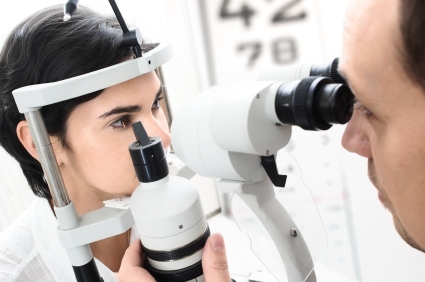Ophthalmology Residency Personal Statement #1
“Don’t worry, you’ll get it eventually,” Dr Smith assured me, as I struggled with the slit-lamp and became increasingly apologetic to the patient sitting behind it. “And once you get it, you’ll realize that there’s a whole new world at the back of the eye.” My interest in ophthalmology first begun after pre-clinical years – I was awarded a summer research project supervised by Dr Joe Smith, a medical retina specialist. Our project aimed to assess HRT II Macular Module’s suitability as a screening tool for diabetic retinopathy. [ad#bannermain]My job involved recruiting patients and scanning their eyes with HRT II. The project won the Big Prize for the best summer research project and culminated in a publication in a peer-reviewed journal.
My initial interest in ophthalmology was solidified during my clinical rotations. Ophthalmology encompassed everything I loved about medicine and surgery – I was fascinated by the ocular manifestations of systemic diseases, and the delicate and challenging surgeries that resulted in dramatic improvement in patients’ quality of life. Most importantly, ophthalmology offered opportunities to build close and meaningful relationships with patients of all ages and background – allowing me to be the warm, compassionate clinician that I always wanted to be. It was during this rotation that I saw, for the first time, a three-dimensional view of the retina – I eventually “got it,” and understood what Dr Smith had meant by “seeing a whole new world at the back of the eye.” From that moment on, my heart was firmly set – I was going to be an ophthalmologist.
So firm was my commitment was to ophthalmology, I took a year off to explore basic science research at the Department of Ophthalmology, University of Auckland, at the corneal research laboratory of Professor Charles Google and Dr Trevor Netscape. I was involved with projects that examined corneal innervation following penetrating keratoplasty and cellular characteristics of early-onset Fuchs’ endothelial dystrophy. Throughout the year, I also had opportunities to participate in various subspecialty clinics and hone my ophthalmic clinical skills. It was exciting being able to correlate laboratory findings with the clinical manifestations of various corneal diseases, a skill that is important in becoming a good clinician-researcher.
My efforts during the research year were rewarded with a number of awards, including the best poster prize at the annual conference of the Royal Australian and New Zealand College of Ophthalmologists in 2006. However, the biggest reward was the seven-week ophthalmology elective at the Big Eye Institute at Major US University. The elective opened my eyes to the amazing clinical and research opportunities that were available in all sub-specialties of ophthalmology in the United States, in basic science, clinical science and public health.
Currently, I am serving as an intern at a busy teaching hospital in Auckland, New Zealand. The internship year allowed me to gain broad clinical knowledge and experience in internal medicine and surgery which will serve me well during ophthalmology residency. It also provided me with wonderful opportunities to develop interpersonal skills, allowing me to become an effective team player as well as an efficient, reliable resident.
Eventually, I hope to pursue a career in academic ophthalmology that combines clinical practice, research and teaching. I’ve always envisaged the role of a teacher and educator to be an important part of my future career. Throughout medical school and internship, I actively participated in endeavors that would improve educational opportunities for fellow medical students and house staff. After all, it was the enthusiasm of many dedicated ophthalmologists and vision science researchers which made ophthalmology fun and exciting for me, and I hope to transmit my enthusiasm and excitement for the specialty to rising residents and medical students.
My experiences in basic science and clinical research and clinical ophthalmology have laid a solid foundation for a career in academic ophthalmology. My internship position in Auckland will give me a clinical platform for the future. Now I hope to build on this foundation by joining a high-quality residency program that offers diverse clinical experience, opportunities for research, and mentorship of the leaders in the field of ophthalmology. My strong work ethic, passion for ophthalmology and compassion towards patients will enable me to succeed in the residency and be an asset to the profession. I am excited about the journey that lies ahead of me, the future I see for myself as an ophthalmologist, and eagerly await the next stage of my medical training.
